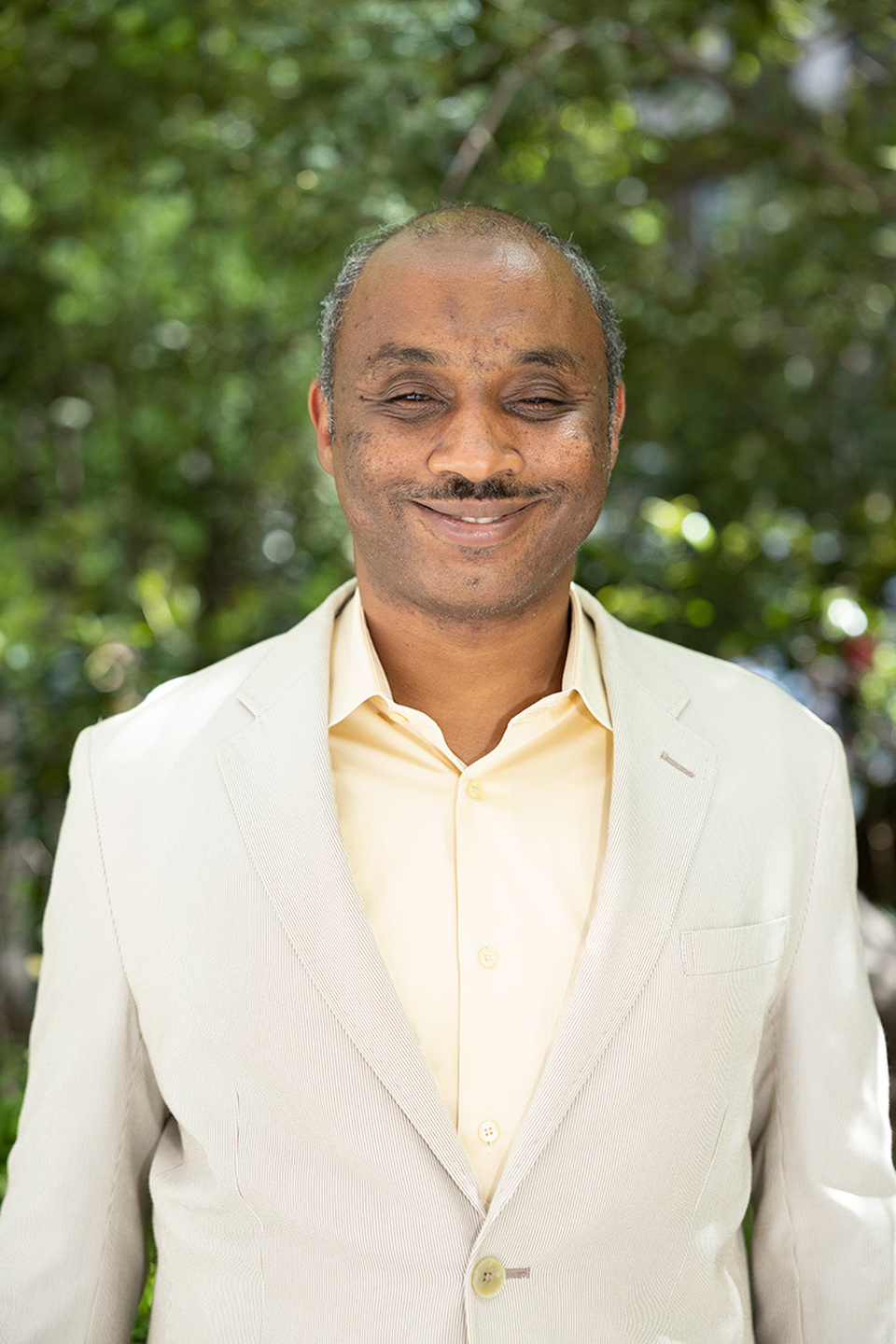Leveraging experience gained from living in Japan, a visually impaired man from Sudan has been working energetically to help those similarly impaired. What is the “freedom of reading” for him? Discover how he has been endeavoring to share that freedom with his fellow Sudanese back home.
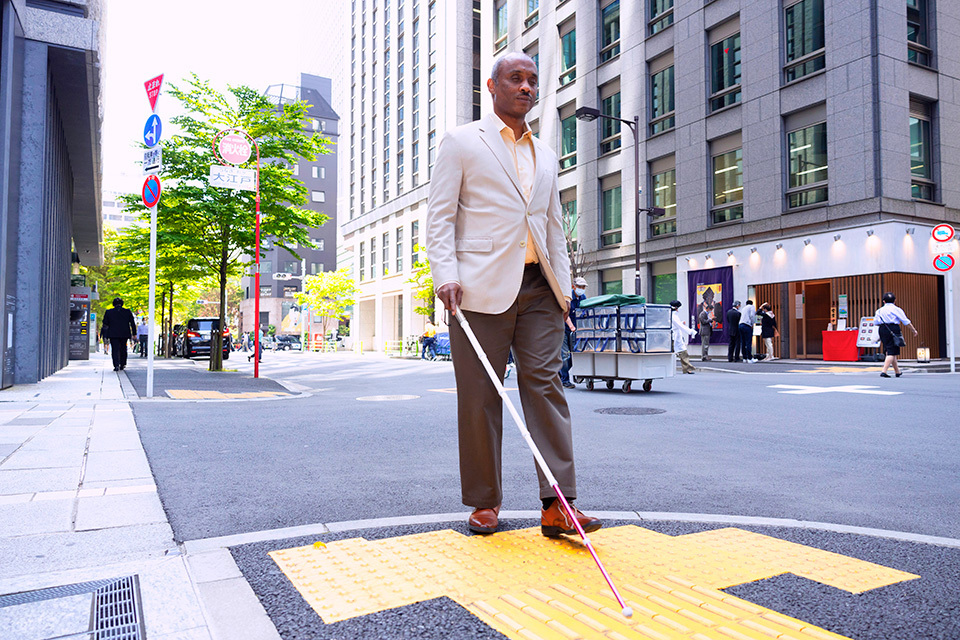
Mohamed Omer Abdin notes that Japanese cities have extensive mass-transit systems and tactile paving is widespread. Furthermore, orientation and mobility training, including walking with a white cane, is widely available. The existence of appropriate facilities and assistance for the visually impaired in Japan was life-changing for him after leaving Sudan.
“Visual impairment equates to information impairment. To be active members of society, the visually impaired need information to be accessible.” This idea has driven a Sudanese man in Japan to support those afflicted in this way. His name is Mohamed Omer Abdin. He is almost completely blind.
How did Abdin become involved in those support activities in a foreign land so far from home? To understand this, we need to know something about the “freedom of reading” he obtained in Japan.
In Sudan, where Abdin lived until 1998, braille and schools for the blind were few and far between. Therefore, he had to study by having his classmates read his textbooks out loud to him. Even after admission to a renowned university, the lack of information accessibility within the learning environment and closure of the university due to the deteriorating political situation in his own country made Abdin uncomfortable at times. It was then that he discovered that the International Association for the Visually Impaired, located in Japan, was recruiting blind students to study in the country. “Japan seems to have an appropriate learning environment for the visually impaired,” thought Abdin, and leapt at the chance.
Upon arrival in Japan, Abdin found a wealth of books in braille and works of literature as audiobooks that he could borrow from the library. This environment allowed him to immerse himself in reading—something that had previously been all but impossible for him. Once Abdin learned how to use narration software on a computer, his horizons expanded further still. He no longer needed someone to read aloud to him, making this a revolutionary event in his life. This is how he gained the “freedom of reading.”
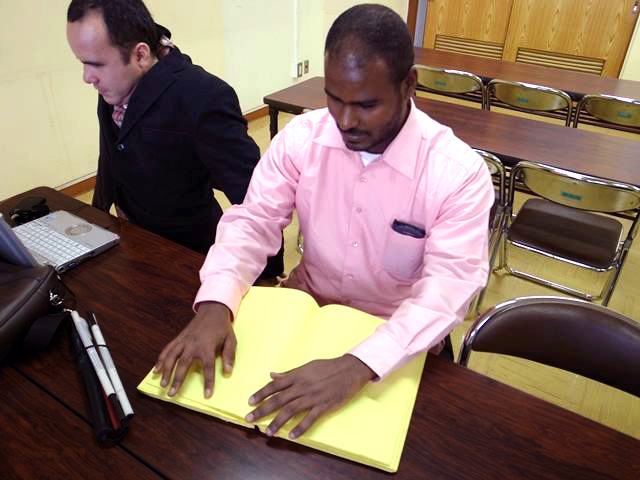
To defend the right to education for visually impaired children in Sudan, Abdin works through an NPO that provides braille textbooks. The man reading a braille textbook in the photo is CAPEDS Board Member Murtada Eljailani.
“How might my life have been different if I’d known braille and how to use a computer during my schooldays?” Abdin came to wonder what he could do for other visually impaired people back in Sudan, so consequently, in 2008, he and his companions in Japan started up an NPO, the Committee for Assisting and Promoting Education for the Disabled in Sudan (CAPEDS). The NPO has been carrying out a variety of activities in Sudan, including installing braille printers and providing braille and computer lessons. These activities have made braille textbooks, which previously could not be produced, available in local Sudanese communities. One of the computer-lesson students, Musharraf Omer, went on to become a computer programmer and develop Bookworm, a screen reader software for the visually impaired. In addition to providing narration for websites and documents in various formats, Bookworm comes with many convenient features such as bookmarks and notes but is simple and accessible. Seeing potential in Bookworm, CAPEDS provides support for the software, expecting it to enrich the lives of visually impaired readers around the world.
Since 2020, Abdin has also been involved in a CSR project at a Japanese company, Santen Pharmaceutical, which specializes in ophthalmic treatment, to support the visually impaired in Japan. The project holds job-search seminars for the visually impaired and supports startups to create services tailored to their needs.
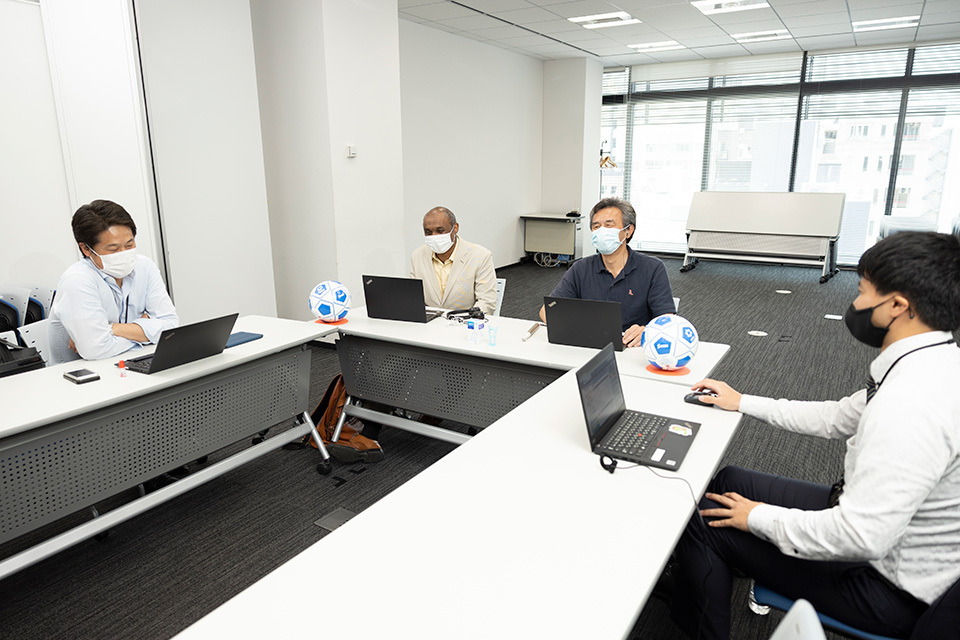
Abdin participating in a meeting in his office at Santen Pharmaceutical. Santen has a clear vision to realize an inclusive society in which people with and without visual impairment play equal roles.
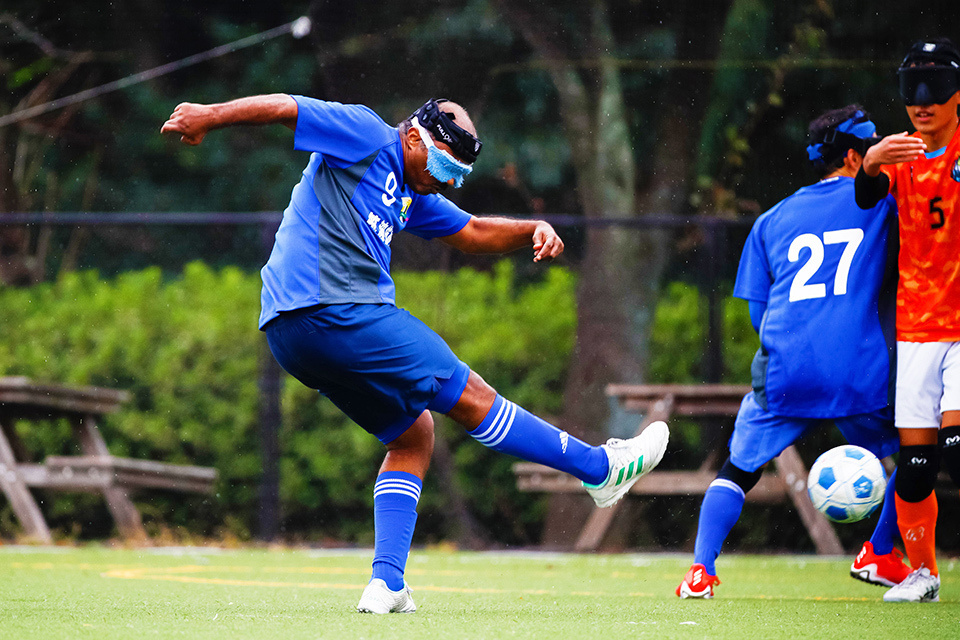
Abdin plays blind soccer, which he took up at university. He met FUKUCHI Kentaro, with whom he started up the NPO, through the sport. H. WANIBE/JBFA
“Japan has accumulated a great deal of knowledge concerning how to assist the disabled. The reason I am in this country is to spread that knowledge to every corner of the world. I wish to help connect Japan and Sudan. At the same time, I want to contribute to the acquisition of the right to study and work for the visually impaired in Sudan and beyond.” Abdin is taking on challenges to help the world’s visually impaired obtain the “freedom of reading” and create a future where they can fully participate in society.
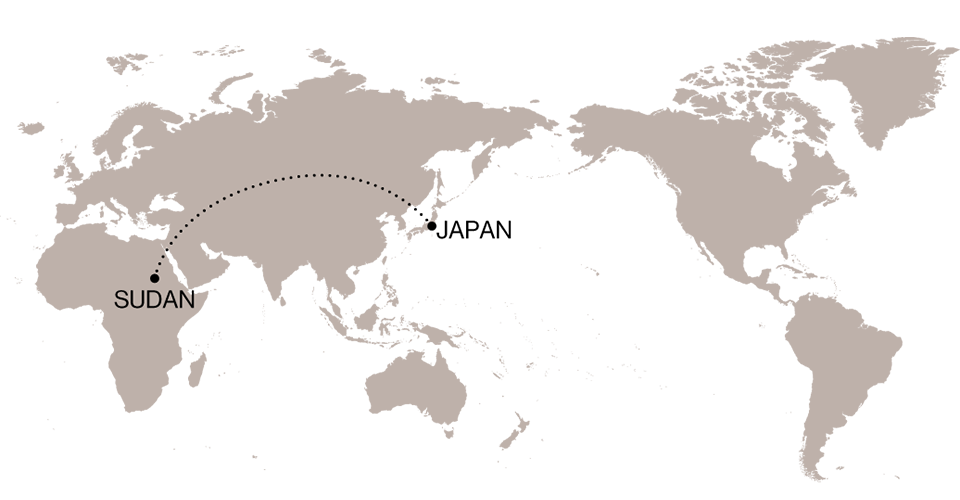
MOHAMED OMER ABDIN
Born in Khartoum, the Sudanese capital, in 1978. Currently works for Santen Pharmaceutical, heads the Committee for Assisting and Promoting Education for the Disabled in Sudan (CAPEDS), conducts research on African politics, and writes essays.
